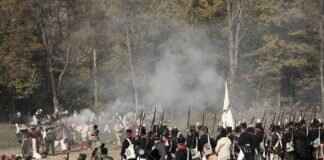This article explores the critical signs indicating when to safely end a water fast, ensuring a healthy approach to fasting while addressing common concerns and misconceptions.
Understanding Water Fasting
Water fasting is a practice where individuals abstain from all food and consume only water for a specified period. This approach can have various benefits, including detoxification, improved metabolic health, and potential weight loss. However, it also carries risks, especially if not monitored properly. Understanding the principles of water fasting is essential to reap its benefits while minimizing health risks.
Physical Signs That Indicate It’s Time to Stop
- Extreme Fatigue and Weakness: If you find yourself feeling excessively tired or weak, it may be a sign that your body is in need of nourishment. This fatigue can impact your daily activities and overall well-being.
- Severe Headaches: While headaches can occur during fasting, severe or persistent ones may indicate dehydration or nutrient deficiencies. It’s important to listen to your body and assess whether these headaches are manageable or if they warrant breaking your fast.
Mental and Emotional Signs to Watch For
- Increased Irritability: Mood swings and irritability are common signs of nutrient deprivation. These emotional disturbances can affect your interactions and overall mental health, prompting a need to reconsider your fasting approach.
- Difficulty Concentrating: Cognitive decline during fasting can be concerning. If you experience trouble focusing or making decisions, this may indicate that your brain is not receiving the necessary nutrients to function optimally.
Health Risks Associated with Prolonged Fasting
- Electrolyte Imbalance: Extended fasting can lead to an imbalance in electrolytes, which are crucial for various bodily functions. Symptoms such as dizziness, heart palpitations, or muscle cramps should not be ignored.
- Kidney and Liver Strain: Prolonged fasting can put stress on vital organs like the kidneys and liver. If you notice any unusual symptoms related to these organs, it’s crucial to stop fasting and consult a healthcare professional.
Consulting a Healthcare Professional
- When to Seek Medical Help: If you experience any severe symptoms or have underlying health conditions, it’s vital to consult a healthcare provider. They can provide personalized advice and ensure your safety during fasting.
- Creating a Personalized Fasting Plan: A tailored fasting plan can help mitigate risks. Consider factors such as your health status, lifestyle, and goals when developing your fasting approach to ensure safety and effectiveness.
In conclusion, while water fasting can offer numerous health benefits, it is essential to listen to your body and recognize the signs that indicate it’s time to stop. By being aware of these physical, mental, and emotional signals, you can ensure a safer fasting experience. Always prioritize your health and consider professional guidance to enhance your fasting journey.

Understanding Water Fasting
Water fasting is a practice that has garnered significant attention in recent years, especially among health enthusiasts and those seeking weight loss. It involves abstaining from all food and consuming only water for a specified period. This method of fasting is believed to offer various health benefits, but it is essential to understand its fundamental principles, advantages, and potential risks before embarking on this journey.
Basic Principles of Water Fasting
The primary concept behind water fasting is to allow the body to enter a state of autophagy, where it begins to break down and recycle damaged cells. By eliminating food intake, the body shifts its energy source from glucose derived from food to stored fat. This metabolic shift can lead to weight loss and other health improvements. Typically, water fasting can last anywhere from 24 hours to several days, depending on individual goals and health conditions.
Benefits of Water Fasting
- Weight Loss: One of the most immediate benefits is weight loss, as the body uses stored fat for energy.
- Improved Insulin Sensitivity: Water fasting can enhance insulin sensitivity, which may help in managing blood sugar levels.
- Cellular Repair: The process of autophagy helps in repairing cells and may reduce the risk of various diseases.
- Mental Clarity: Many individuals report increased mental clarity and focus during fasting periods.
Potential Risks of Water Fasting
While there are numerous benefits, water fasting is not without its risks. It is crucial to approach this practice with caution:
- Dehydration: Not consuming adequate water can lead to dehydration, which has serious health implications.
- Nutrient Deficiencies: Prolonged fasting may result in deficiencies in essential vitamins and minerals, negatively impacting overall health.
- Electrolyte Imbalance: Extended fasting can disrupt the balance of electrolytes, leading to complications such as heart arrhythmias.
- Physical Weakness: A lack of energy intake can cause extreme fatigue and weakness, making daily activities challenging.
Conclusion
In summary, water fasting is a powerful tool that can provide numerous health benefits when done correctly. However, it is essential to recognize its limitations and potential risks. Individuals considering this fasting method should consult with healthcare professionals, especially if they have underlying health conditions. By understanding the principles, benefits, and risks of water fasting, individuals can make informed decisions about their health and well-being.

Physical Signs That Indicate It’s Time to Stop
Understanding when to end a water fast is crucial for maintaining your health and well-being. While fasting can offer various benefits, it is essential to listen to your body and recognize the signs that suggest it may be time to stop. This section will delve into the physical signs that indicate you should end your water fast, ensuring a safe and healthy fasting experience.
- Extreme Fatigue and Weakness: If you find yourself feeling excessively tired or weak, it may be your body’s way of signaling that it needs nourishment. These symptoms can manifest as a lack of energy, difficulty performing daily tasks, or a general sense of malaise. It is important to pay attention to these feelings, as they can indicate that your body is not receiving the necessary nutrients it requires to function optimally.
- Severe Headaches: While mild headaches can be common during fasting, severe or persistent headaches may point to dehydration or a lack of essential nutrients. Understanding the reasons behind these headaches is important; they could signify that your body is struggling to maintain its balance without food. If you experience continuous headaches that do not improve with hydration, it may be time to reconsider your fasting approach.
- Dizziness or Lightheadedness: Experiencing dizziness or lightheadedness can be a warning sign that your body is not receiving enough energy. This could be due to low blood sugar levels or dehydration. If these symptoms occur, it is advisable to break your fast to prevent further complications.
- Rapid Heartbeat: An increased heart rate can occur during fasting due to several factors, including dehydration or electrolyte imbalance. If you notice your heart racing or feel palpitations, this could be a sign that your body is under stress and needs to be nourished.
- Gastrointestinal Distress: If you experience nausea, vomiting, or severe abdominal pain, these symptoms may indicate that your body is struggling to cope with the fasting state. Such discomfort can be a clear signal that it’s time to end your fast and allow your digestive system to recover.
It is vital to remember that fasting is not a one-size-fits-all approach. Each individual’s body reacts differently, and what works for one person may not work for another. Thus, being aware of these physical signs can help you make informed decisions about your fasting journey. Always prioritize your health and well-being over the fasting experience itself.
In addition to recognizing these physical signs, it is also important to consider your overall health status and any underlying conditions that may affect your fasting experience. If you have pre-existing health issues or are taking medications, consulting a healthcare professional before starting a water fast is highly recommended. This ensures that you can safely navigate the fasting process and address any potential complications that may arise.
In summary, being attuned to your body’s signals is essential for a safe and effective water fasting experience. By recognizing the signs that indicate it may be time to stop, you can ensure that your fasting journey remains a positive and health-promoting endeavor.
Extreme Fatigue and Weakness
When engaging in a water fast, many individuals anticipate experiencing various physical and mental changes. However, one of the most concerning signs that may arise is extreme fatigue and weakness. These symptoms can indicate that your body is signaling a need for nourishment, and recognizing these signs is critical for maintaining your health during fasting.
Extreme fatigue during a water fast can manifest in several ways. You may find yourself feeling unusually lethargic, struggling to perform daily tasks that you once completed with ease. This level of tiredness is not just a simple lack of energy; it can be a sign that your body is running low on essential nutrients and energy reserves. When you stop consuming food, your body begins to utilize stored glycogen and fat for energy. However, prolonged fasting can deplete these reserves, leading to a state of weakness.
Additionally, weakness can present itself physically, making you feel unsteady or shaky. This sensation can be alarming, as it may affect your ability to carry out normal activities, such as walking or even standing for extended periods. If you experience these symptoms, it is crucial to listen to your body. Ignoring signs of extreme fatigue and weakness can lead to more severe health complications, including fainting or injury.
Moreover, these symptoms can also be accompanied by other warning signs, such as dizziness, confusion, or a lack of mental clarity. When your body is deprived of necessary nutrients, it can also affect your cognitive function, making it difficult to think clearly or concentrate. This interplay between physical and mental fatigue can create a challenging experience, further emphasizing the importance of recognizing when to end your fast.
It is essential to understand that while fasting can offer various health benefits, it is not suitable for everyone, and the body’s response can vary significantly among individuals. Factors such as age, existing health conditions, and overall fitness levels can influence how your body reacts to fasting. Therefore, if you find that extreme fatigue and weakness persist, it may be time to reassess your fasting approach.
In conclusion, while fasting can be a beneficial practice, it is vital to pay attention to your body’s signals. If you experience extreme fatigue and weakness during a water fast, consider breaking your fast and reintroducing nourishing foods. Always consult with a healthcare professional if you are unsure about your fasting regimen or experience concerning symptoms. Remember, your health should always come first, and listening to your body is key to a safe and effective fasting experience.
Severe Headaches
During water fasting, many individuals experience a range of physical symptoms, with being one of the more common complaints. While mild headaches can occur due to caffeine withdrawal or changes in eating patterns, persistent or intense headaches may signal more serious issues such as dehydration or nutrient deficiencies.
Understanding the underlying causes of these headaches is crucial for anyone engaging in prolonged fasting. Here are some of the primary reasons:
- Dehydration: One of the most significant factors contributing to headaches during fasting is dehydration. When you stop consuming food, you may also inadvertently reduce your water intake. The body requires adequate hydration to function optimally, and a lack of water can lead to headaches.
- Nutrient Deficiencies: Extended fasting can lead to a deficiency in essential vitamins and minerals. For instance, low levels of magnesium and potassium can contribute to headache intensity. When your body lacks these vital nutrients, it can manifest as discomfort or pain in the head.
- Electrolyte Imbalance: As mentioned previously, during fasting, the balance of electrolytes such as sodium, potassium, and magnesium can be disrupted. This imbalance can lead to headaches, fatigue, and even muscle cramps.
- Withdrawal Symptoms: If you are accustomed to consuming caffeine or sugar regularly, the sudden cessation during a fast can trigger withdrawal headaches. These headaches often present themselves as throbbing pain and can be quite debilitating.
- Increased Stress Hormones: Fasting can elevate cortisol levels, the stress hormone, which may lead to tension headaches. The body reacts to fasting as a stressor, causing an increase in cortisol that can contribute to headache symptoms.
Recognizing these signs is essential for maintaining a safe fasting experience. If you find that your headaches are becoming increasingly severe or do not subside with hydration, it may be time to reconsider your fasting plan. Listening to your body is paramount; ignoring these signals can lead to further complications.
To alleviate headaches during fasting, consider the following practical tips:
- Ensure you are drinking enough water throughout the day. Aim for at least 2-3 liters depending on your activity level and environmental conditions.
- Monitor your electrolyte intake. You may consider adding a pinch of salt to your water or using electrolyte supplements to maintain balance.
- Gradually reduce caffeine and sugar intake before starting your fast to minimize withdrawal symptoms.
- Pay attention to your body’s signals. If headaches persist despite these measures, it might be wise to consult a healthcare professional.
In conclusion, while headaches can be a common occurrence during fasting, severe or persistent headaches should not be overlooked. Understanding the potential causes and taking proactive steps can help you manage this discomfort effectively. Always prioritize your health and well-being during fasting, and don’t hesitate to seek medical advice if needed.

Mental and Emotional Signs to Watch For
Mental clarity is often touted as a significant benefit of fasting; however, it is equally important to acknowledge that emotional disturbances can also surface during this period. Understanding the psychological signs that may indicate it is time to end your fast is crucial for maintaining overall health and well-being.
Fasting can lead to a state of heightened awareness and focus for some individuals, but it can also provoke negative emotional responses. Here are some key psychological signs to monitor:
- Increased Irritability: One of the most common emotional signs during fasting is heightened irritability. This can manifest as short tempers or frustration over minor inconveniences. Nutrient deprivation can significantly impact your mood, making it essential to listen to your body and recognize when these feelings become overwhelming.
- Difficulty Concentrating: While some people report improved concentration during fasting, others may experience cognitive decline. If you find it increasingly hard to focus or complete tasks, it may be a signal that your body is lacking essential nutrients, and breaking your fast could be beneficial.
- Feelings of Anxiety or Depression: Fasting can sometimes trigger feelings of anxiety or exacerbate existing depressive symptoms. If you notice an increase in anxiety levels or persistent feelings of sadness, it may be time to reconsider your fasting approach and seek nourishment.
- Heightened Emotional Sensitivity: During fasting, you may find yourself more emotionally sensitive than usual. This heightened sensitivity can lead to emotional outbursts or difficulty managing stress. If you feel overwhelmed by your emotions, it may indicate that your body needs sustenance.
- Social Withdrawal: If you begin to isolate yourself from friends and family or lose interest in social activities, it could be a sign that fasting is negatively impacting your mental health. Social interaction is vital for emotional well-being, and withdrawing may signal the need to end your fast.
Recognizing these signs early can help you make informed decisions about your fasting journey. It is essential to approach fasting with mindfulness and self-awareness. If you find that these emotional disturbances are persistent and impacting your quality of life, it may be prudent to break your fast and consult a healthcare professional for guidance.
In conclusion, while fasting can offer numerous benefits, it is imperative to remain attuned to both physical and emotional cues. Prioritizing your mental health is just as important as any physical benefits you may hope to achieve.
Increased Irritability
is a common psychological symptom that can emerge during water fasting. While many people embark on fasting with the hope of achieving mental clarity and emotional balance, the reality can sometimes be quite different. Nutrient deprivation can lead to significant mood fluctuations, which may manifest as irritability or mood swings.
When the body is deprived of essential nutrients, the brain may not receive the necessary fuel to function optimally. This lack of nourishment can result in , making it difficult to maintain a positive outlook. Understanding this connection is crucial for anyone considering or currently engaged in water fasting.
During fasting, the body undergoes several physiological changes. One key change is the fluctuation of blood sugar levels. When blood sugar drops, it can lead to feelings of anger, frustration, and irritability. Additionally, fasting can impact neurotransmitter levels, which are responsible for regulating mood. For instance, serotonin, often referred to as the “feel-good” hormone, may decrease during periods of fasting, contributing to negative emotional states.
Furthermore, the psychological effects of fasting can be exacerbated by external stressors. When individuals are already facing challenges in their personal or professional lives, fasting may amplify feelings of irritability. It is essential to consider how your current circumstances might influence your emotional state during a fast.
Recognizing the signs of increased irritability is vital. If you find yourself snapping at loved ones, feeling unusually anxious, or experiencing sudden mood swings, it may be time to reassess your fasting approach. Here are some practical tips to manage irritability while fasting:
- Stay Hydrated: Ensure you are drinking enough water to prevent dehydration, which can worsen irritability.
- Monitor Your Mood: Keep a journal to track your emotional state throughout the fasting period. This can help identify patterns and triggers.
- Consider Nutritional Supplements: If you are fasting for an extended period, consult a healthcare professional about supplements that may help mitigate nutrient deficiencies.
- Practice Mindfulness: Engage in mindfulness or meditation practices to help manage stress and improve emotional regulation.
In conclusion, while fasting can offer various health benefits, it is crucial to remain aware of the potential psychological impacts. If increased irritability becomes a significant issue, it may be a sign to reconsider your fasting strategy. Listening to your body and mind is essential in ensuring a safe and beneficial fasting experience.
Difficulty Concentrating
During periods of water fasting, many individuals experience a range of physical and mental changes. One of the most concerning issues that can arise is difficulties with concentration. This article delves into the cognitive challenges that can accompany fasting and emphasizes the importance of recognizing when these signs indicate the need to break your fast for the sake of mental well-being.
Fasting is often pursued for various reasons, including weight loss, detoxification, or spiritual growth. However, as the body adjusts to a lack of food intake, it can lead to cognitive decline. This decline manifests in various ways, including a noticeable decrease in focus and mental clarity. If you find yourself struggling to concentrate on tasks that once seemed effortless, it may be time to reassess your fasting approach.
One of the primary reasons for cognitive decline during fasting is the depletion of essential nutrients. The brain requires a steady supply of glucose and other nutrients to function optimally. When these resources are limited, you may experience symptoms such as:
- Brain Fog: A feeling of confusion or lack of mental clarity.
- Difficulty with Decision Making: Struggling to make choices or feeling overwhelmed by simple tasks.
- Memory Lapses: Forgetting important details or having trouble recalling information.
Additionally, fasting can lead to fluctuations in blood sugar levels, which can further exacerbate these cognitive issues. A dip in blood sugar can result in irritability, fatigue, and difficulty concentrating, making it crucial to listen to your body’s signals. If you find that your ability to focus is significantly impaired, it may be a sign that your body is signaling for a much-needed break from fasting.
Moreover, the psychological aspect of fasting should not be overlooked. Prolonged fasting can lead to increased stress and anxiety levels, which can further hinder cognitive function. Mental fatigue may set in, making it challenging to engage in activities that require sustained attention. If you notice that your mood is becoming increasingly unstable or your motivation is waning, these could be indicators that it’s time to end your fast.
It’s important to remember that fasting should not come at the expense of your mental health. While many people report enhanced focus and clarity during short fasting periods, extended fasting can lead to the opposite effect. If you experience significant cognitive decline, consider breaking your fast with a light meal that includes complex carbohydrates, healthy fats, and protein to replenish your energy levels and support brain function.
In conclusion, while fasting can offer various benefits, it’s essential to remain vigilant about the signs your body is sending you. If you encounter , it may be a clear indication that your body needs nourishment to maintain mental well-being. Always prioritize your health and consider consulting a healthcare professional if you have concerns about your fasting practices.

Health Risks Associated with Prolonged Fasting
Extended water fasting can lead to serious health risks that may not be immediately apparent. While many individuals pursue fasting for various health benefits, it is crucial to recognize the potential complications that can arise when signs to stop are ignored. This section delves into the significant health risks associated with prolonged fasting, emphasizing the importance of listening to your body.
Water fasting involves consuming only water while abstaining from all food. Although short-term fasting can have benefits, extending the fast beyond recommended durations can lead to severe complications. Here are some of the most critical health risks:
- Electrolyte Imbalance: One of the most significant dangers of prolonged fasting is the risk of electrolyte imbalance. Electrolytes, such as sodium, potassium, and magnesium, are vital for many bodily functions, including muscle contractions and nerve signaling. A deficiency can lead to symptoms like muscle cramps, irregular heartbeats, and even seizures.
- Kidney and Liver Strain: Extended fasting can place substantial stress on the kidneys and liver. These organs are responsible for filtering toxins and processing nutrients. When deprived of food for too long, they may struggle to function properly, leading to complications such as kidney stones or liver dysfunction.
- Dehydration: While water is consumed during a water fast, the body still loses fluids through sweat and urine. Prolonged fasting without adequate hydration can result in dehydration, characterized by symptoms like dizziness, dry mouth, and fatigue. Severe dehydration can lead to kidney failure and other serious conditions.
- Nutrient Deficiencies: Extended periods without food can lead to serious deficiencies in essential vitamins and minerals. This can affect overall health, leading to weakened immune response, bone density loss, and other long-term health issues.
Being aware of the signs that indicate your body is struggling during a fast is crucial. Some symptoms to watch for include:
- Persistent Weakness or Fatigue: If you find it increasingly difficult to perform daily tasks or feel unusually weak, it may be time to reconsider your fasting approach.
- Severe Headaches: While headaches can occur during fasting, severe or chronic headaches may signify dehydration or nutrient deficiency.
- Confusion or Cognitive Decline: Difficulty concentrating or experiencing confusion can indicate that your body is not receiving the necessary nutrients to function properly.
In summary, while water fasting can offer health benefits, it is essential to be aware of the risks associated with prolonged fasting. Ignoring the body’s signals can lead to serious health complications that may outweigh any potential benefits. Always prioritize your health and consult with a healthcare professional if you experience any concerning symptoms during your fasting journey.
Electrolyte Imbalance
During a water fast, the body undergoes significant changes as it adjusts to the absence of food. One crucial aspect that often goes overlooked is the role of electrolytes. These essential minerals, including sodium, potassium, calcium, and magnesium, are vital for numerous bodily functions, such as maintaining fluid balance, nerve signaling, and muscle contractions. An imbalance in electrolytes can lead to severe health issues, making it imperative to understand their importance and recognize the symptoms of imbalance during fasting.
Electrolytes are charged particles that help regulate various physiological processes. They are crucial for:
- Fluid Balance: Electrolytes help control the amount of water in and around cells.
- Nerve Function: They facilitate the transmission of electrical signals in the nervous system.
- Muscle Contraction: Proper electrolyte levels are necessary for muscle function, including the heart.
During fasting, it’s vital to monitor for signs of electrolyte imbalance, which can manifest in various ways:
- Muscle Cramps: Sudden, involuntary contractions may indicate low levels of potassium or calcium.
- Heart Palpitations: Irregular heartbeats can signal an imbalance in sodium or potassium, potentially leading to serious complications.
- Dizziness or Lightheadedness: These symptoms may arise from dehydration or low blood pressure, often linked to inadequate electrolyte intake.
- Fatigue and Weakness: Persistent tiredness can indicate a lack of essential minerals, affecting overall energy levels.
To prevent electrolyte imbalances during fasting, consider the following strategies:
- Stay Hydrated: Ensure adequate water intake, as dehydration can exacerbate electrolyte loss.
- Consider Electrolyte Supplements: If fasting for extended periods, electrolyte powders or tablets can help replenish lost minerals.
- Monitor Your Body: Pay attention to physical and mental signs—if you notice any symptoms of imbalance, it may be time to break your fast.
If you experience severe symptoms such as confusion, persistent vomiting, or extreme fatigue, it is crucial to seek medical help immediately. These could be signs of a serious electrolyte imbalance that requires professional intervention. Always consult with a healthcare provider before embarking on a prolonged fast, especially if you have pre-existing health conditions.
Understanding the importance of electrolytes and recognizing the symptoms of imbalance is essential for a safe and effective fasting experience. By being aware of your body’s signals and maintaining proper hydration and nutrient levels, you can enhance your fasting journey while minimizing health risks.
Kidney and Liver Strain
When engaging in prolonged water fasting, it is essential to be aware of the potential strain it can place on vital organs such as the kidneys and liver. These organs play crucial roles in detoxification and metabolic processes. Understanding the signs that indicate your kidneys or liver may be struggling is vital for maintaining your health during a fast.
One of the first signs to watch for is unusual fatigue. While some fatigue is expected during fasting, if you experience overwhelming tiredness that interferes with daily activities, it may signal that your kidneys are overworked. The kidneys filter waste from the blood, and prolonged fasting can lead to an accumulation of toxins, making them work harder than usual.
Changes in urine output are another critical indicator. If you notice a significant decrease in urine production or a change in urine color, it could suggest that your kidneys are under stress. Darker urine may indicate dehydration, which can further exacerbate kidney strain. Conversely, very light urine could signify that your body is trying to expel excess waste due to an overload of toxins.
Additionally, pay attention to abdominal discomfort. Persistent pain or discomfort in the area around your liver can be a sign that it is struggling to process the body’s waste products effectively. The liver is responsible for metabolizing fats and detoxifying harmful substances, and prolonged fasting can lead to an overload of these tasks.
Another alarming sign is the presence of nausea or vomiting. These symptoms can indicate that your body is reacting negatively to the fasting process, potentially due to a buildup of toxins that the liver and kidneys can no longer manage efficiently. If these symptoms occur, it is crucial to reassess your fasting approach.
Moreover, confusion or cognitive changes can also signal that your body is not coping well with the fasting state. The liver plays a significant role in glucose metabolism, and if fasting leads to low blood sugar levels, it may affect your mental clarity and overall cognitive function.
To summarize, recognizing these signs is crucial for anyone considering or currently undergoing prolonged water fasting. If you experience any of the symptoms mentioned above, it is advisable to end your fast and consult with a healthcare professional. Your health should always be the priority, and understanding your body’s signals can help you make informed decisions about fasting.
In conclusion, while water fasting can offer various health benefits, it is essential to approach it with caution. Being aware of the signs of kidney and liver strain can help ensure a safer fasting experience, allowing you to reap the benefits without compromising your health.

Consulting a Healthcare Professional
When engaging in water fasting, it is essential to prioritize your health and well-being. One of the most critical aspects of fasting is understanding when to seek professional medical advice. is not just a precaution; it is a vital step that can significantly impact your fasting experience, ensuring it is both safe and effective.
Before embarking on any fasting journey, especially for extended periods, it is advisable to consult with a healthcare provider. They can assess your overall health, review any pre-existing conditions, and provide personalized recommendations tailored to your specific needs. This guidance is crucial in establishing a safe fasting plan that aligns with your health goals.
During the fasting process, paying attention to your body’s signals is paramount. If you experience unusual symptoms such as dizziness, extreme fatigue, or persistent headaches, it is essential to reach out to a healthcare professional. These symptoms could indicate that your body is not responding well to the fast, and professional advice can help you determine whether to continue or safely break your fast.
Moreover, after completing a water fast, consulting a healthcare professional is equally important. Transitioning back to regular eating should be done cautiously to avoid potential digestive issues or nutrient imbalances. A healthcare provider can guide you on the best practices for reintroducing food into your diet, ensuring a smooth and healthy transition.
Here are some specific scenarios when consulting a healthcare professional becomes crucial:
- If you have underlying health conditions such as diabetes, heart disease, or kidney issues.
- Experiencing severe symptoms that do not improve with rest and hydration.
- If you are pregnant or breastfeeding, as fasting can affect both maternal and fetal health.
- When considering fasting for extended periods beyond 24 hours.
In addition to seeking help when needed, creating a personalized fasting plan with a healthcare professional can mitigate risks associated with water fasting. This plan should consider your health history, lifestyle, and fasting goals. A tailored approach increases the likelihood of a successful and safe fasting experience, allowing you to reap the benefits of fasting while minimizing potential health risks.
In conclusion, is an indispensable part of the fasting journey. Whether you are preparing for, undergoing, or recovering from a fast, their expertise can provide the necessary support and guidance to ensure your health remains a top priority. Your well-being is paramount, and professional advice can help you navigate the complexities of fasting safely and effectively.
When to Seek Medical Help
Understanding when to seek medical help is crucial for maintaining your health, especially during practices such as water fasting. Many individuals embark on fasting journeys for various reasons, including detoxification and weight loss. However, it is essential to recognize that not all fasting experiences are safe or beneficial. This section outlines specific circumstances that warrant immediate consultation with a healthcare provider, ensuring your safety and well-being.
- Severe Dehydration: If you experience excessive thirst, dry mouth, or dark yellow urine, these could be signs of dehydration. Dehydration can lead to serious complications, including kidney damage. Seek medical advice if symptoms persist.
- Persistent Nausea or Vomiting: While mild nausea can occur during fasting, persistent vomiting is a cause for concern. This can lead to electrolyte imbalances and dehydration, necessitating medical attention.
- Chest Pain or Shortness of Breath: These symptoms can indicate serious health issues, such as heart problems. If you experience chest pain or difficulty breathing, seek emergency medical help immediately.
- Severe Abdominal Pain: While some discomfort may be expected, severe abdominal pain could signal underlying issues such as gallstones or pancreatitis. It’s vital to consult a healthcare professional if this occurs.
- Confusion or Disorientation: If you find yourself feeling confused or disoriented, it may indicate a significant drop in blood sugar levels or dehydration. These symptoms require immediate medical evaluation.
Recognizing the need for medical help is not just about the physical signs; mental health plays a crucial role as well. Fasting can sometimes exacerbate underlying psychological conditions or lead to new ones.
- Severe Mood Changes: If you notice drastic changes in your mood, such as increased anxiety or depression, it may be time to consult a mental health professional. Fasting can impact neurotransmitter levels, affecting your emotional state.
- Obsessive Thoughts About Food: If fasting leads to an unhealthy preoccupation with food or eating patterns, this could indicate an eating disorder. Seeking help from a healthcare provider can offer support and guidance.
It is also essential to consider your personal health history. Individuals with pre-existing conditions, such as diabetes or heart disease, should be particularly cautious. Always consult with a healthcare provider before starting any fasting regimen, especially if you have existing health concerns.
Creating a safe fasting environment involves understanding your body and its limits. Regular check-ins with a healthcare professional can help navigate the complexities of fasting, ensuring that your approach is safe and effective. Remember, your health is paramount, and recognizing when to seek medical help can be life-saving.
In conclusion, being aware of the signs that indicate the need for medical intervention during fasting is crucial for your well-being. Whether it’s physical symptoms or mental health concerns, never hesitate to reach out for professional advice. Your health journey should always prioritize safety and informed decision-making.
Creating a Personalized Fasting Plan
Creating a personalized fasting plan is essential for anyone considering water fasting. A tailored approach not only enhances the effectiveness of the fast but also significantly reduces potential risks associated with prolonged fasting. Here are some key steps to develop your own plan:
- Assess Your Health Status: Before starting, it’s crucial to evaluate your overall health. Consult with a healthcare professional to determine if water fasting is safe for you, especially if you have pre-existing conditions such as diabetes, heart disease, or eating disorders.
- Set Clear Goals: Define what you aim to achieve through fasting. Whether it’s weight loss, detoxification, or spiritual reasons, having clear objectives will guide your fasting journey.
- Determine the Duration: Decide how long you plan to fast. Beginners may start with shorter fasts of 24-48 hours, gradually increasing as they become more comfortable with the process.
- Stay Hydrated: During your fasting period, ensure you consume adequate water. Aim for at least 2-3 liters per day, adjusting based on your activity level and climate.
- Monitor Your Body: Pay attention to how your body responds during the fast. Keep a journal to track symptoms such as fatigue, headaches, or mood changes. This will help you recognize when it might be time to end the fast.
- Plan Your Break Fast: After completing your fast, reintroduce food gradually. Start with light meals, such as broths or smoothies, and avoid heavy or processed foods to prevent digestive distress.
- Incorporate Nutrient-Dense Foods: When you resume eating, focus on whole, nutrient-rich foods. This will help replenish any deficiencies and support your overall health.
- Listen to Your Body: Above all, trust your instincts. If you experience severe discomfort or unusual symptoms, do not hesitate to end your fast.
By following these guidelines, you can create a personalized fasting plan that aligns with your health needs and fasting goals. Remember, the key to successful fasting lies in preparation and self-awareness. Always prioritize your well-being and consult professionals when necessary.
In addition, consider joining a community or support group for those who practice fasting. Sharing experiences and tips can enhance your understanding and provide motivation throughout your fasting journey. With the right approach, water fasting can be a beneficial practice that contributes to your health and wellness.
Frequently Asked Questions
- What is water fasting?
Water fasting is a practice where you abstain from all food and consume only water for a set period. It’s often done for health benefits, detoxification, or spiritual reasons.
- How long can I safely water fast?
The duration of a safe water fast varies by individual, but it’s generally recommended to fast for no longer than 24 to 72 hours without medical supervision. Always listen to your body and consult a healthcare professional.
- What are the signs that I should stop my water fast?
If you experience extreme fatigue, severe headaches, or emotional disturbances like irritability, these are clear signs that your body may need nourishment. Don’t ignore these signals!
- Can water fasting lead to health risks?
Yes, prolonged water fasting can lead to serious health issues such as electrolyte imbalances and strain on your kidneys and liver. It’s crucial to be aware of your body’s signals during the fast.
- Should I consult a doctor before starting a water fast?
Absolutely! Consulting a healthcare professional before starting a water fast is essential, especially if you have pre-existing health conditions or concerns about fasting.














